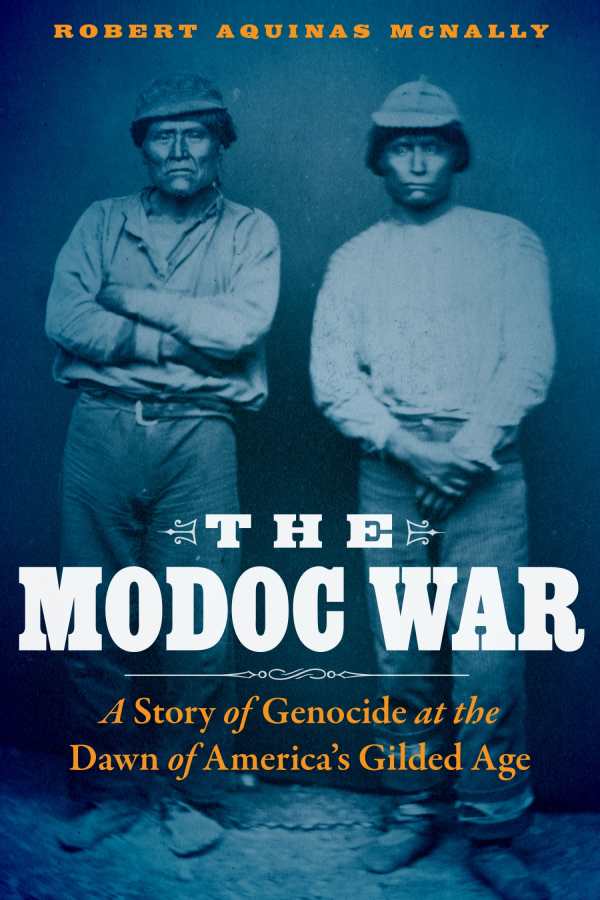The Modoc War
A Story of Genocide at the Dawn of America's Gilded Age
McNally provides a brutally frank and damningly well-documented account of the war’s sordid background.
The 1873 Modoc War pitted the small but fierce Modoc tribe against the United States government, which sought to expel them from their homes near the present-day California/Oregon border. After initial hostilities, the Modocs took refuge in the rugged wilderness of south of Tule Lake. In the months of siege and guerrilla warfare that followed, they inflicted major losses and expense before being defeated and captured.
The Modoc War was extensively documented, not only in official military and government records, but in firsthand accounts, including memoirs, letters, lectures, and news stories from daring reporters who managed to interview the besieged Modocs. Robert Aquinas McNally masterfully weaves information from these diverse sources into one narrative, letting distinct viewpoints shine through and noting biases and preconceptions.
Bitter ironies abound. Frazier Boutelle, whose memoir documented a soldier’s view of the war, was of mixed heritage, but nonetheless endorsed the myth of white superiority. The Modocs, remembering that they were once betrayed and attacked under a false flag of truce, responded in kind, only to find that it made their situation immeasurably worse.
Alfred Meachum, a US negotiator left for dead after a Modoc ambush, became one of their most dedicated advocates. And Kientpoos became a tragic figure doomed by ironies: a proponent of peace who was pushed into violence by belligerent factions of his own tribe, he was betrayed by those same factions when they switched sides to save themselves.
Key events in the conflict are portrayed in cinematic intimacy, but McNally also provides a brutally frank and damningly well-documented account of the war’s sordid background: the faithless greed of white settlers who coveted the Modocs’ land, the perfidy of US government officials, and the ingrained bigotry of the encroaching American culture and its doctrine of Manifest Destiny. He also shows how the conflict had consequences far beyond the battlefield, as President Grant’s Quaker-inspired “peace policy” toward native peoples was politically undermined by unsympathetic military officers and by public reaction to the Modoc War.
The Modoc War documents a dramatic chapter in the history of US aggression against native peoples.
Reviewed by
Bradley A. Scott
Disclosure: This article is not an endorsement, but a review. The publisher of this book provided free copies of the book to have their book reviewed by a professional reviewer. No fee was paid by the publisher for this review. Foreword Reviews only recommends books that we love. Foreword Magazine, Inc. is disclosing this in accordance with the Federal Trade Commission’s 16 CFR, Part 255.

